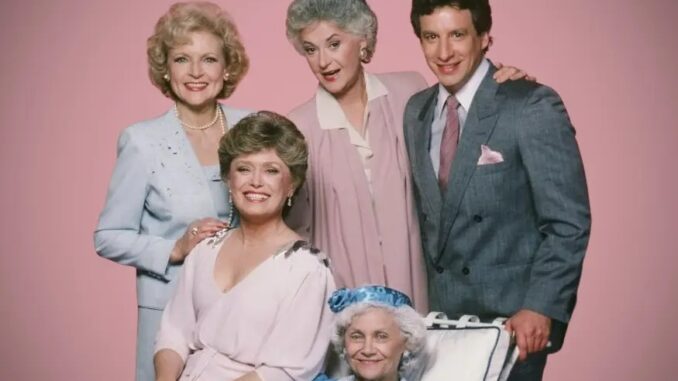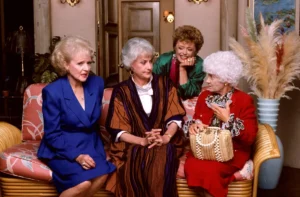
The beloved sitcom “The Golden Girls” has long been celebrated for its progressive and groundbreaking approach to tackling sensitive social issues. However, a particular episode from the show’s acclaimed run has found itself at the center of a recent controversy, leading to its removal from certain streaming platforms.
The episode in question, titled “Mixed Blessings,” originally aired in 1990 and dealt with the topic of interracial marriage. In the episode, Dorothy’s son, Michael, becomes engaged to a much younger, African-American woman, leading to tensions and cultural misunderstandings within the Devereaux family.

While the episode was widely praised for its thoughtful and nuanced handling of the subject matter, it has now been deemed too controversial for modern audiences, resulting in its ban from several streaming services, including Hulu.
The decision to remove the episode has sparked a heated debate among fans and critics alike, with many arguing that the show’s willingness to tackle complex social issues should be celebrated, not censored. The “Golden Girls” was renowned for its ability to address sensitive topics with empathy, humor, and a progressive perspective, making the banning of this particular episode all the more perplexing.
Supporters of the episode’s continued availability point to the show’s overall legacy of promoting diversity, acceptance, and understanding. They argue that censoring the episode denies viewers the opportunity to engage with the nuanced exploration of racial and cultural differences, ultimately undermining the show’s larger mission of fostering meaningful dialogue.
On the other hand, those in favor of the episode’s removal cite the need to be cognizant of modern sensibilities and the evolving social landscape. They contend that certain depictions, even if well-intentioned, may be insensitive or outdated when viewed through a contemporary lens, and that the decision to restrict access to the episode is a necessary step in ensuring a more inclusive and respectful viewing experience.

As the debate continues to unfold, it highlights the complex challenges faced by content creators and distributors in navigating the shifting cultural landscape. The fate of the “Golden Girls” episode serves as a poignant reminder of the delicate balance between preserving the integrity of historical storytelling and addressing the evolving concerns and sensitivities of modern audiences.
Ultimately, the controversy surrounding this particular episode underscores the enduring relevance and importance of “The Golden Girls” as a groundbreaking series that dared to tackle difficult topics with wit, empathy, and a pioneering spirit. Whether the episode remains accessible or not, the show’s legacy as a trailblazer in television history remains firmly intact.
